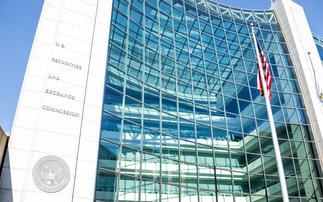New Climate KIC reveals nearly two thirds of European business leaders now see climate change as a risk to their business
A change is sweeping through boardrooms across Europe. Executives in every industry are waking up to the challenge that climate change is posing to their business.
This is not hyperbole. A new study released today by Climate KIC surveyed more than 130 board level executives from businesses across the EU, and found that 63 per cent of European business leaders think climate change poses a regulatory and physical risk to their business, while 68 per cent believe that investing to address their company's carbon footprint would help to secure their place in supply chains and stay ahead of regulation.
Crucially, this was not a survey of climate leaders - businesses well known for their progressive stance on climate. Instead, the survey polled large, business-to-business companies from a variety of industrial sectors.
However, although awareness is high of the risks - and opportunities - presented by climate change, many business leaders do not know what to do about it. "European business is willing but it is not yet equipped for the low-carbon transition," says Climate KIC chief executive Bertrand van Ee, who adds that there is little understanding of how to translate concern about climate change into concrete action for individual businesses.
While just over half of firms do have a climate action plan, the study found that many of the strategies are not bold enough to drive real change in the business community. It found there is a dearth of radical vision around R&D, corporate governance and cross-sector collaboration - factors that are critical to achieving long-term decarbonisation.
In particular, the report highlights four key barriers to radical climate innovation. Here we highlight the key points - and explores what can be done about them:
Ditch small steps for big leaps
A staggering 35 per cent of business leaders believe their market is unchanging, and therefore they have little or no need for innovation. Meanwhile, less than four in 10 business leaders believe their R&D departments have sufficient expertise to respond to climate change. "You still see a lot of businesses looking at innovation as a cost. And that is how it's labelled in the finance systems," says van Ee. He believes innovation must be looked at as an investment, not focused on squeezing value out of existing assets but on encouraging radical step changes in business practices.
One solution is to look outside the four walls of big business. The report recommends firms engage more closely with smaller start-ups and universities to gain access to game-changing ideas in need of further investment.
Encourage climate-smart hiring
Across business departments - from HR to finance to marketing - the survey found that employees lack the skills and knowledge needed to formulate strategies to address climate risk. The report concludes that businesses need to treat climate change in the same way they would treat a new piece of regulatory compliance - by hiring employees with the necessary skills sets to manage and analyse the risk. This includes hiring climate specialists at board level to act as a climate leader responsible for developing and implementing top-level climate strategy.
There also needs to be a change in corporate structures to encourage more long-term thinking - for example, switching year-on-year bonuses for incentives that favour longer term strategies.
Embrace 'bendy' rules
Just 13 per cent of the businesses surveyed believe that the climate regulation introduced by the EU in the last decade has made it easier for them to deal with climate change effectively. And only three in 10 believe that current regulation encourages them to develop and scale up innovative clean technologies and ways of working to respond to climate change.
Van Ee believes we are entering a new phase of fast-paced innovation, creating new opportunities for businesses to think creatively. He points out that firms such as Airbnb and Uber did not wait for regulation to define their business - they targeted a regulation-free space and left policy makers to develop guidelines around them.
Going forward, the regulatory system needs to allow flexibility for fast-paced change. "On the one hand of course you need your laws to give protection, but at the same time we need to have the guts to rethink certain elements," says Van Ee. "If it's too protective we are not making progress either."
A new study released this week by the Carbon Trust also concluded that in order to encourage greater collaboration in the global clean technology sector governments will need to better align policy and regulatory environments.
Knock heads together
Climate change is a global challenge and will require co-ordinated action from businesses, politicians and the general public if it is to be tackled successfully. Yet according to the report too many businesses believe that cross-sector collaboration will put them in breach of EU competition law. Two-thirds of those surveyed believe EU-level competition law has limited industry's ability to collaborate and respond collectively to climate change, the report found.
However, the involvement of third party organisations such as Climate KIC could provide a way for firms to share the risks - and rewards - of innovation projects, without putting themselves in breach of EU law.
For example, Van Ee describes a Climate KIC project called Oasis, which is a collaboration among a number of insurance firms in London to develop software that can assess financial risk from climate events. "In a programme like that it's not just going to be one insurance company that will sign up for it, because these are pretty big investments," he says. "And that's what you typically see, the climate problem is so big that it's not something one company that can say 'I'm going to tackle this one alone'."
The Carbon Trust study similarly found that greater international collaboration between public and private actors could reduce development costs by substantially over the next decade. It found that if governments work together effectively on clean technology, it could reduce the estimated $5tr cost of deploying clean tech by $550bn by 2025.
It is increasingly clear a growing number of businesses not only want to take action on climate change, there are proven and effective strategies for them to pursue in order to do so.










